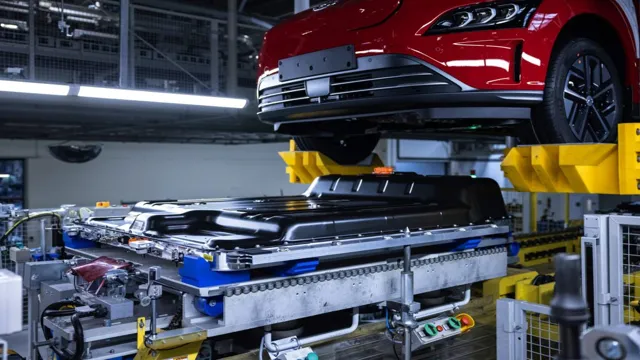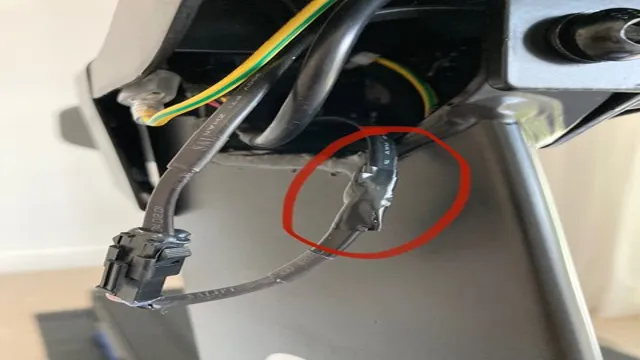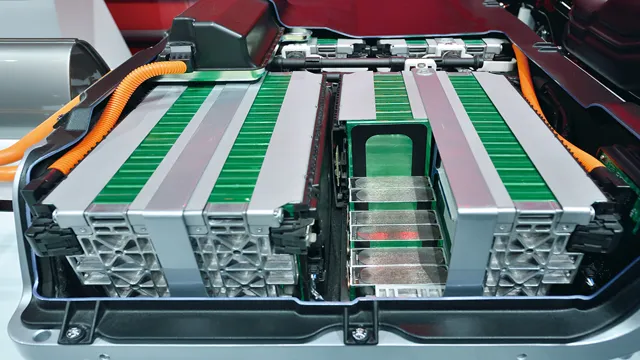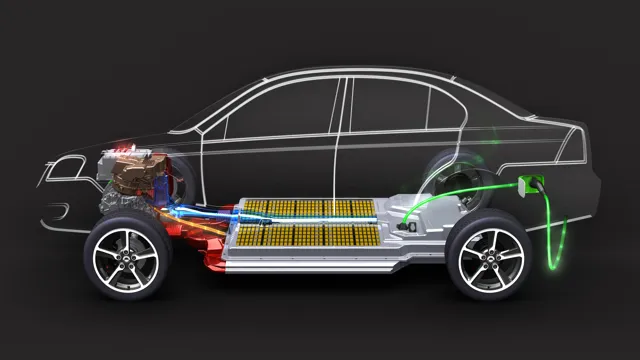Unleashing the Power: Understanding the Capacity of an Electric Car Battery
Electric cars are gaining immense popularity, and with each passing year, we see the emergence of advanced technologies in this sector. The battery is perhaps the most essential component of an electric car, and it’s important to understand how they work and their capacities. More particularly, battery capacities have a significant effect on the driving range and convenience of your electric car.
In this blog, we’ll explore electric car battery capacities and all you need to know about them. So, read on to find out!
What is battery capacity?
The capacity of an electric car battery refers to the amount of energy it can store and use to power the vehicle. This is measured in kilowatt-hours (kWh) and determines the distance the car can travel on a single charge. Generally, the higher the battery capacity, the longer the driving range of the electric vehicle.
For instance, a car with a battery capacity of 60 kWh can travel around 200 miles while a car with a capacity of 100 kWh can travel over 300 miles on a single charge. It’s important to note that battery capacity may vary based on driving conditions, speed, and temperature. As battery technology continues to evolve, car manufacturers are working towards improving battery capacity to enhance the driving range of electric cars.
With the increasing demand for sustainable transportation, battery capacity is a crucial factor in the adoption of electric vehicles as a viable alternative to traditional gasoline-powered cars.
Breaking down the technical jargon
Battery capacity is the amount of charge that can be stored in a battery. This is typically measured in milliampere hours (mAh) or ampere hours (Ah) and represents how much energy the battery can hold. Essentially, the higher the capacity, the longer the battery will last before it needs to be recharged.
It’s important to note that battery capacity is not the same as battery life or battery longevity, which refer to how long the battery can perform at its maximum capacity before it begins to degrade. So, think of battery capacity as the gas tank of your car – the larger the tank, the more miles you can go before refueling.
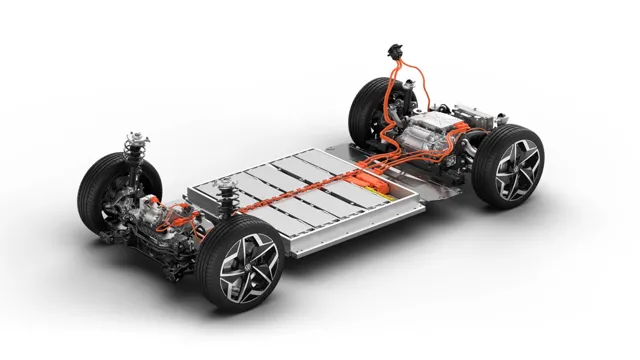
How is capacity measured?
When it comes to electric cars, the battery capacity is a crucial factor to consider. The amount of energy that the battery can store and supply to the motor is measured in kilowatt-hours (kWh). This measurement indicates the amount of energy the battery can provide over time.
The capacity of an electric car battery can vary depending on the make and model of the car, but typically ranges from 30 kWh to 100 kWh. However, it’s important to note that the advertised capacity may not be the actually usable capacity. Factors such as temperature, age, and usage can affect the battery’s capacity.
Therefore, it’s essential to understand the battery’s usable capacity, which is the amount of energy that can be accessed and used by the vehicle. By understanding the battery capacity and usable capacity, drivers can make informed decisions about their electric car and ensure they are maximizing the vehicle’s performance.
Understanding kilowatt-hours (kWh)
Capacity measured for energy usage is measured in kilowatt-hours (kWh). This unit is used to measure the amount of energy used by a device or system over one hour. For instance, if a light bulb has a power rating of 100 watts and it was turned on for 10 hours, this would result in a total energy consumption of 1 kilowatt-hour.
In simple terms, 1 kilowatt-hour refers to the amount of energy used by a 1,000-watt appliance for one hour. But it’s important to note that energy consumption is not limited to one hour. This energy unit can be used for small items like light bulbs, or for larger systems like a household’s energy usage.
Understanding kilowatt-hours is fundamental when it comes to calculating energy costs, and when deciding how to reduce energy consumption.
How far can an electric car go on a single charge?
One of the most important factors that electric car buyers consider is the capacity of an electric car battery. The range of an electric vehicle can greatly affect a driver’s decision to make the switch from gasoline to electricity. The capacity of an electric car battery can vary depending on the make and model, with some cars having the ability to travel up to 400 miles on a single charge.
However, most electric cars have a range of around 100 to 250 miles. It’s important to note that factors such as weather conditions, driving style, and the use of in-car features like air conditioning can also affect the range of an electric vehicle. Despite this, electric car batteries are continuously improving and the latest advancements in battery technology mean that soon, drivers will be able to travel even further without a single recharge.
Factors that affect range
Range, Electric car, Single Charge Electric cars are gaining in popularity due to their eco-friendliness and the cost savings of not using traditional gasoline. However, one of the primary concerns of potential electric car owners is the range of the vehicle on a single charge. The distance an electric car can travel before needing to be recharged varies widely depending on several factors.
The type of electric car, the battery capacity, the speed and driving conditions, and the weather can all impact the total range of the vehicle. For example, a smaller electric car with a smaller battery will naturally have a shorter range than a larger car with a larger battery. Similarly, fast driving and harsh weather conditions can drain the battery faster, reducing the vehicle’s range.
It’s important for drivers to keep these factors in mind and plan accordingly when traveling long distances in an electric car. Overall, the range of electric cars is steadily improving thanks to advancements in battery technology, making them a viable option for more drivers looking to make the switch to greener transportation.
Examples of popular electric car models and their ranges
When it comes to electric cars, one of the most common questions people ask is how far they can go on a single charge. The range of an electric car depends on several factors such as the type of battery, driving behavior, and weather conditions. Some of the most popular electric cars on the market today include the Tesla Model S, which boasts a range of up to 402 miles on a single charge.
The Chevrolet Bolt has a range of 259 miles, and Nissan’s Leaf Plus can go up to 226 miles on a single charge. Other popular models include the Hyundai Kona Electric with a range of 258 miles, and the Kia Niro Electric with a range of 239 miles. One important thing to keep in mind is that the listed range may vary in practice, so it’s important to do your research and read reviews from other electric car owners before making a purchase.
Overall, electric cars are becoming increasingly popular due to their impressive range and low cost of ownership compared to traditional gas-powered vehicles.
How fast can an electric car charge?
When it comes to charging electric cars, the capacity of the battery plays a crucial role in determining how quickly the vehicle can be charged. The higher the capacity of the battery, the longer it takes to recharge fully. For example, a Tesla Model S with a 100 kWh battery can potentially charge up to 80% in just 40 minutes using a high-powered Supercharger.
However, it could take over 75 minutes to fully recharge the battery. On the other hand, an electric car with a smaller 40 kWh battery can be charged up to 80% in under 30 minutes using a DC fast charger. The speed of charging is also influenced by factors such as the charging station’s output power, the car’s onboard charging capacity, and the battery’s current state of charge.
It is essential to note that continuously fast-charging the battery can degrade its overall health, reducing its long-term performance and lifespan. Hence, it is crucial to balance the need for quick charging with the overall battery maintenance for the electric vehicle’s optimal performance.
Exploring charging times and options
Electric car charging times and options can vary greatly depending on the model and technology used. One of the fastest charging options available is called DC fast charging, which delivers high amounts of power to the car’s battery, allowing for a much faster charge time. However, not all electric vehicles are equipped to handle DC fast charging.
Alternatively, there is also AC charging, which is more widespread and can be found in public charging stations, homes, and workplaces. AC charging typically takes longer, but can still provide a full charge within a few hours. It’s important to note that some electric vehicles may have different charging capabilities and may require special charging equipment.
Additionally, charging times can also vary based on the battery capacity and the level of charge when beginning the charging process. Overall, it’s important to consider the charging options and capabilities of the electric vehicle when making a purchase or planning a road trip.
The importance of charging infrastructure
As more and more drivers switch to electric vehicles, the importance of charging infrastructure becomes increasingly evident. One of the main concerns for drivers is the speed at which their car can charge. The good news is that fast charging technology is advancing rapidly, enabling drivers to recharge their batteries more quickly than ever before.
The time it takes to fully charge an electric vehicle depends on a variety of factors, including the size of the battery, the type of charger being used, and the current charge level of the battery. However, with the latest fast charging technology, many electric vehicles can be charged to 80% in as little as 30 minutes. It’s crucial for charging infrastructure to continue to improve to accommodate the growing number of electric vehicles on the road, making EV driving easy, convenient, and accessible for all.
Conclusion: Electric cars are poised for growth
In the world of electric cars, the battery is the pulsing heart that powers the vehicle. Its capacity determines the range and performance of the car, much like the endurance and stamina of an athlete. And just like athletes, electric car batteries also need training and proper care to maintain their peak performance.
So go ahead and take care of your electric car’s battery, and watch it lead you to victory in the race towards a sustainable future!
FAQs
What is the average capacity of an electric car battery?
The average capacity of an electric car battery ranges from 40 kWh to 100 kWh depending on the make and model.
How long does it take to fully charge an electric car battery?
Charging time for an electric car battery depends on the charger type and the battery’s maximum charging capacity. On average, a level 2 charger can fully charge a 60 kWh battery in 8-10 hours.
How many miles can an electric car travel on a single charge?
The mileage an electric car can travel on a single charge depends on the battery’s capacity and the car model. On average, electric cars can travel between 100-300 miles on a single charge.
What is the lifespan of an electric car battery?
The lifespan of an electric car battery depends on various environmental and usage factors. On average, electric car batteries last between 8-10 years or 100,000-150,000 miles before needing replacements.
